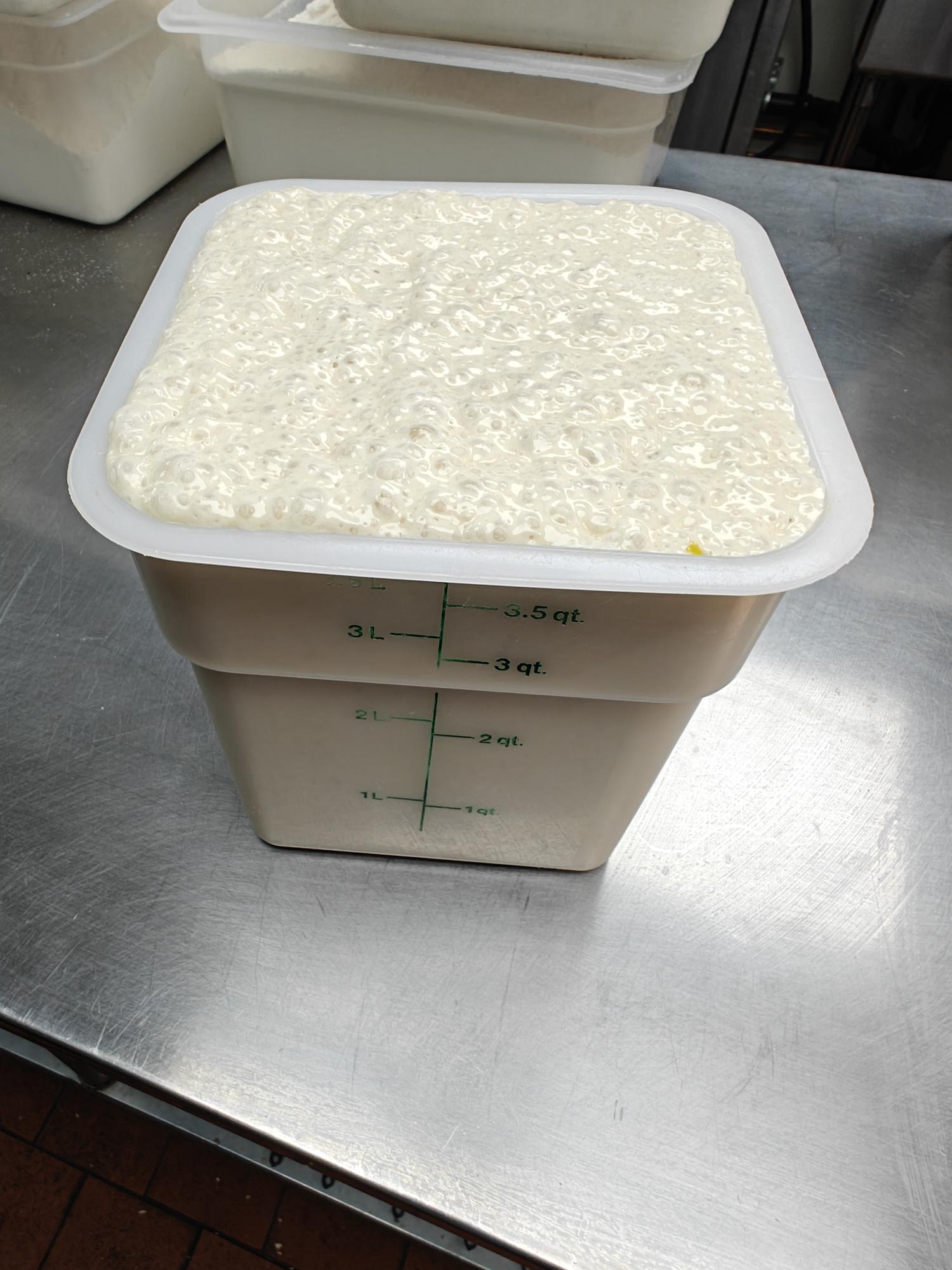The Health Benefits of Sourdough Bread: Why It's Better for You

In recent years, sourdough has made a well-deserved comeback—not just for its bold flavor and rustic charm, but for the science-backed health benefits that set it apart from conventional bread. Whether you're looking for better digestion, fewer blood sugar spikes, or just a more nourishing slice, here's why real sourdough belongs on your plate.
1Naturally Easier to Digest
Sourdough is made through long, slow fermentation using wild yeast and lactic acid bacteria. This process breaks down some of the starches and proteins (including gluten) in the flour before the bread is even baked. That means your body has to do less work to digest it.
Studies show sourdough is easier on the stomach than conventional breads—especially for people with non-celiac gluten sensitivity or IBS symptoms.
2Lower in Gluten (But Not Gluten-Free)
The fermentation process partially degrades gluten, the protein in wheat that's responsible for dough's elasticity. While sourdough is not safe for people with celiac disease, it's often better tolerated by those who have mild gluten sensitivity.
In some cases, the gluten content of true sourdough may be 30–50% lower than in non-fermented breads.
3Reduces FODMAPs – A Relief for IBS
FODMAPs are fermentable carbohydrates that can cause bloating, gas, and discomfort in sensitive individuals. Long-fermented sourdough breaks down many of these compounds, making it easier to digest for those with irritable bowel syndrome (IBS).
Research published in the Journal of Functional Foods shows that properly fermented sourdough wheat bread contains significantly lower levels of FODMAPs than standard bread.

4Supports Gut Health
Lactic acid bacteria used in sourdough production are natural probiotics. Though most don't survive baking temperatures, the organic acids and fermentation byproducts they leave behind continue to benefit your digestive tract.
These byproducts act as prebiotics—fuel for the good bacteria already in your gut—helping maintain a balanced microbiome.
5Boosts Mineral Absorption
Grains naturally contain phytic acid, which binds to minerals like iron, zinc, and magnesium, making them harder for your body to absorb. The sourdough fermentation process significantly reduces phytic acid content, increasing the bioavailability of these nutrients.
Sourdough fermentation can reduce phytates by up to 90%, according to studies from the University of Helsinki.
6Helps Balance Blood Sugar
Compared to commercial breads, sourdough has a lower glycemic index (GI). This means it doesn't spike your blood sugar as quickly, which helps sustain energy and reduce hunger swings.
Typical sourdough bread has a GI of around 54, versus about 70–75 for white bread. That's a meaningful difference for anyone watching their blood sugar.
7Naturally Longer Shelf Life
Thanks to the organic acids produced during fermentation, sourdough resists spoilage and mold naturally—without the need for preservatives.
That tangy flavor you love? It also helps keep your bread fresher, longer.
Summary: Why Choose Sourdough?
| Benefit | How Sourdough Helps |
|---|---|
| Easier to digest | Pre-digestion of starches and proteins via fermentation |
| Lower in gluten and FODMAPs | Gentler on the digestive system and better for sensitive individuals |
| Gut health support | Provides prebiotic compounds that help your microbiome |
| Better nutrient absorption | Reduces phytic acid so your body absorbs more minerals |
| Blood sugar stability | Low glycemic index reduces spikes and crashes |
| Natural preservation | Organic acids extend shelf life without artificial additives |
Whether you're after wellness, flavor, or both, sourdough is more than a trend—it's a time-tested, science-backed way to eat better bread. The next time you choose a slice, pick one that's naturally fermented, crafted with care, and made the traditional way.
Want to taste the difference? Try a sourdough loaf or pizza crust made the real way—slow, simple, and better for you.
